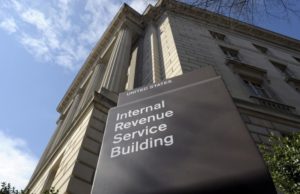Why Aren’t People Spending Their Tax Refunds?
Economists, politicians and people in general like to discuss the nation’s economy and where it stands at any given moment. There are many different points that are touched on and several aspects that are used as evidence to make important points. However, one indicator of the economy’s health that can never really be argued is consumer spending.
When spending is up the economy improves, as does the nation’s overall outlook. However, when spending is down, the economy slows and the outlook gets darker. To that end, what does it say about the economy that a lot of people are putting their 2015 tax refunds in the bank, instead of splurging on frills? It means consumers are still exercising caution and taking a wait-and-see approach.
According to the numbers, even though the average tax refund has been up 0.7 percent in 2015, about half of all taxpayers said they planned to save at least some of their refund money this year. That means they are going to be spending less. In fact, that percentage is as high as it’s been since the National Retail Association started conducting its survey 12 years ago.
Many other consumers, almost 40 percent, also said they are planning to pay off some debt when they get their refund check this year. In a separate survey by BankRate.com only 3 percent said they planned to spend all of their refund and 67 percent said they were going to use it to pay off debt.
So, while the news is good that taxpayers are getting a little more back this year, the news for the economy might not be as promising At any rate, with more money being returned to consumers, at some point it should make it back in to the economy. That means even though the boost might not come now, it could still come later.
When Not to Name Your Spouse the Beneficiary of Your IRA
When Not to Name Your Spouse the Beneficiary of Your IRA By Robert Cavanaugh In most cases, naming your spouse as the beneficiary of your IRA makes the most sense. However, depending on your wishes, other beneficiary arrangements may do a better job of accomplishing your goals. First, let’s take a quick look at the…
IRS Guidance for SEC Disclosure of Listed Transaction Penalties
IRS Guidance for SEC Disclosure of Listed Transaction Penalties On August 15, 2005, the IRS issued guidance to taxpayers who are required to disclose listed transaction penalties to the SEC. Rev. Proc. 2005-51 sets forth the form, content, and timing of SEC disclosures for certain reportable transaction penalties that taxpayers are required to make pursuant…
How to be a “Tax-Conscious” Investor
How to be a “Tax-Conscious” Investor “Uncle Sam wants you!” goes the slogan on that old poster. He also wants you to pay taxes. On the income from your employment. On what you earn from many of your investments. On a portion of the gain from the sale of those investments. But there is a…
President Going After the Wealthy Again With Proposed Tax Hikes
President Going After the Wealthy Again With Proposed Tax Hikes By Alan Olsen, CPA, MBA (tax) Managing Partner Greenstein Rogoff Olsen & Co. LLP The divide between Republicans and Democrats on Capitol Hill appears to be spreading even wider after President Obama used his State of the Union Address to take dead aim at high…




